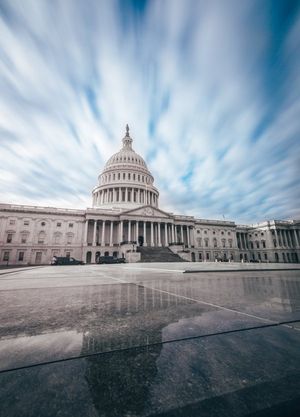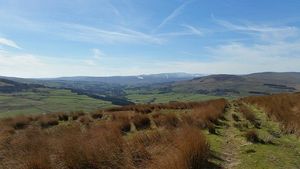Following David Livingstone, groups like the London Missionary Society and Dutch Reformed Church continued to bring the gospel to Northern Rhodesia. Plymouth Brethren missionaries like Frederic Stanley Arnot, Walter Fisher and Dan Crawford also came.
The Baptists arrived in the 1920s. The Central African Baptist Union from Southern Rhodesia planted the Ndola and Lusaka Baptist Churches in the 1950s. The churches that existed when Zambia won independence in 1964 were derived from the activities of such groups.
Many of these churches had inherited sound doctrinal confessions, but had effectively lost their hold on the truth through the influence of modernism.
This declension was reflected in most of the Congregational, Presbyterian and Methodist Churches that amalgamated in 1965 to form the United Church of Zambia. The Christian Brethren, Baptists and others did not join this grouping.
Zeal
After independence there was a rapid expansion in Zambia’s educational sector. Many secondary schools, teacher-training colleges, nursing schools and technical colleges were established, and the University of Zambia was opened in Lusaka.
These institutions proved fertile ground for the gospel, and many students and young people were converted during the 1970s.
Through the agency of school groups and camps run by Scripture Union (SU) there was an ongoing work of conversion amongst schoolchildren.
College Christian Unions flourished and the Nurses Christian Fellowship was much used by the Lord among hospital medical staff.
The zeal of Zambian students to share the gospel was fervent. They visited schools and laboured in local church situations. New churches were sometimes born from their visits.
They preached the gospel on buses, to their families, and at Christian meetings. They preached wherever they went. Sermons and doctrinal issues were discussed freely.
Revival
In 1969, Graham Ingram, a former student of Spurgeon’s College, became pastor of Lusaka Baptist Church (LBC). Pastor Ingram was influenced by the preaching of Dr Martyn Lloyd-Jones, and systematically and passionately expounded the Scriptures.
The writer was saved during this time in LBC’s young people’s fellowship. The pastor preached with such intensity that some, overwhelmed by the gospel and convicted of sin, could not leave their seats at the end of a service.
Many students came to LBC. Banner of Truth publications and other Reformed literature helped them discover the doctrines of grace. And LBC was by no means the only Evangelical church in Lusaka experiencing such blessing.
A large work of God was taking place. For example, strategic churches were planted in Kabwe, Ndola, and Kitwe.
In Kitwe Chapel, where Frazer Mackenzie was youth worker (he died in 1977), many young people were converted and came into church membership. They had a desire to be scriptural and holy. Similar awakenings took place in other towns on the Copper Belt.
Division and growth
Serious differences arose amongst believers in the University of Zambia during the 1970s. It began with some accusing others of unholy living. The ‘holy’ ones were accused of being legalistic.
Other problems connected with the interpretation of Scripture were involved. Believers from outside the campus took sides. Before long, local churches were engulfed in the problems.
Then, by the late 1980s, the charismatic movement had become widespread in Zambia. ‘Independent’ ministries mushroomed and big charismatic conferences were organised.
These featured ‘being slain in the spirit’, ‘barking’, ‘prophetic’ utterances (mostly to do with material prosperity), dancing at worship meetings and clap offerings.
The movement permeated previously conservative churches. The SU and college Christian Unions were affected. Many churches in Zambia were split.
However, although the devil had sowed the seeds of discord, a vital gospel and church-planting work has continued to this day, particularly among Reformed Baptists and Brethren.













